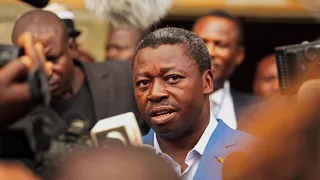
Amnesty International has urged Togo’s government to investigate disturbing allegations of torture following the arrest of protesters during recent demonstrations in Lomé.
The rallies, held on June 5 and 6, were sparked by widespre
Authorities confirmed the release of 56 individuals on June 9, but as of June 17, three detainees remained in custody.
Amnesty reported harrowing accounts from at least ten protesters, who described being beaten, tied with cords around the soles of their feet, forced to “dance in the rain,” and running barefoot across gravel — often while doused with cold water.
Medical reports cited by Amnesty confirm “gluteal muscle bruises” and “paravertebral bruises,” allegedly sustained during detention at the Djidjolé gendarmerie.
“The ECOWAS Court of Justice has already condemned Togo a dozen times for similar acts,” said Fabien Offner, Amnesty International’s West Africa researcher.
He demanded “an effective investigation, accompanied by prosecutions against those responsible.”
Togolese authorities have denied any wrongdoing. In a televised statement on June 9, the public prosecutor accused protesters of “aggravated disturbance of public order” for gathering without permission and erecting barricades.
He reiterated the release of dozens while noting that prosecutions were ongoing.
On June 6, the government issued a separate warning targeting social media users, vowing legal consequences for anyone sharing “unfounded information likely to cause serious public order disturbances.”
The demonstrations gained traction following the arrest of popular rapper Aamron (Narcisse Tchalla), who had mockingly proposed a protest on June 6 — President Faure Gnassingbé’s birthday.
Arrested at home on May 26, Aamron vanished for days before reappearing in a video from a psychiatric hospital, apologizing for having “insulted” the president.
His lawyer, Maître Célestin Agbogan, confirmed the artist had been hospitalized, denied visitors, and was reportedly receiving “injections.”
At the heart of the unrest is the April 2024 constitutional reform, which abolished direct presidential elections and handed sweeping executive powers to the president of the Council of Ministers — a role now held by Faure Gnassingbé.
Appointed by Parliament on May 3, 2025, Gnassingbé can be re-elected indefinitely, provided his party maintains a legislative majority.
Two key opposition parties — the Democratic Forces for the Republic and the National Alliance for Change — have condemned the new framework as a “constitutional coup” that entrenches a de facto one-party state.
The government has also come under fire for suppressing press freedom.
The HAAC, Togo’s media regulator, suspended France 24 and RFI for three months, accusing the outlets of “repeated breaches” of journalistic standards and broadcasting “inaccurate” or “biased” reports — particularly regarding coverage of the protests.
President Faure Gnassingbé, in power since 2005, continues a political dynasty that began with his father, Gnassingbé Eyadéma, who ruled the country for 38 years.
Previous waves of protest in 2005, 2012, and 2017 were similarly marred by violent crackdowns and allegations of torture.
The UN Special Rapporteur on Human Rights Defenders has also called for the release of poet and activist Honoré Sitsopé Sokpor, known as Affectio, who has been jailed for five months after urging citizens to express their “outrage” over the regime.



